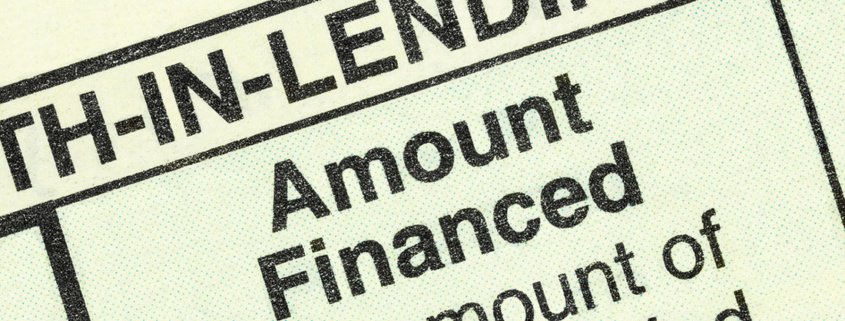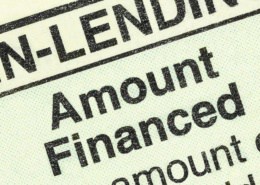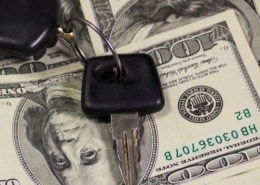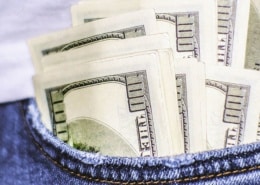The Ultimate Guide to Dealer Financing (2024 Edition)
How Dealer Financing Works in a Dealership
Car dealers want you to believe you must finance a car at the same place you buy it; this is untrue. A few decades ago, they didn’t even have dealer financing available. They added auto finance departments after spotting an opportunity to boost their business models’ need for profit.
Another misconception is assuming a car dealership finances the vehicle. The dealer does not approve or deny you a car loan. All they do is arrange financing for you with the many banks and lenders they partner with. The lender is the one that ultimately determines if you will be approved for a car loan and at what interest rate.
Table of Contents
What is Dealer Financing?
Dealers who work closely with manufacturers, such as independent and franchise dealerships, provide in-house financing. Dealers might do this through a manufacturer-owned financing firm, a dealership, or a different entity.
Some dealerships, such as independent Buy Here Pay Here dealerships, may offer 100% in-house financing for individuals who cannot qualify for an auto loan through a traditional prime or subprime lender.
Whatever the circumstance, it all comes down to the financing options that the dealership provides for you. You may apply for an auto loan when you purchase a car. If given the green light, you may utilize this loan to pay for your automobile.
Most experts often view dealer financing as a last choice. Dealers profit greatly from in-house financing since they may mark up the rate. For instance, if you were approved for a loan at 4 percent through a bank, you may get a dealership finance offer at 6 percent. This gives the dealer a 2 percent profit connecting you with a lender.
Getting a pre-approved auto loan online is the best course of action. At competitive rates, auto loans are available from banks, credit unions, and online lenders. If you want dealer financing, it is simpler to negotiate a favorable deal once approved for another loan. If not, you’ll be at the whim of the finance provider the dealer selects for you.
How Dealer Financing Works in a Dealership
When you negotiate a deal with the dealer throughout the dealer financing procedure, the dealer, for instance, can assist you in locating a loan offer with the desired loan term and affordable monthly payments.
If a manufacturer has its own financing company, the dealer financing offer might occasionally even come with special discounts.
For instance, if a customer agrees to a shorter loan term, they might receive a financing offer of 0% for a particular vehicle model.
NOTE: The dealer financing process can be financially dangerous for a consumer with no idea what they qualify for before proceeding further.
There are many ways a dealer can take advantage of a car buyer and even attempt one of many car dealer scams associated with the finance process of buying a car.
Dealer Financing Pros and Cons
What I like about dealer financing (pros):
- Promotional offers – To entice creditworthy buyers to choose dealer financing, dealerships may participate in special programs, such as discounts on specific vehicles or a low-interest rate.
- Simple application process – Dealer financing is simple because it allows you to shop for your car while completing the loan paperwork to receive offers right away. As a result, you are spared the time-consuming task of researching banks and completing numerous applications in advance.
- Negotiable terms – Dealer financing may be less flexible than direct financing, but you can still negotiate interest rates, terms, or other loan conditions. To make the loan more affordable, the dealer might agree to charge a lower markup.
What I dislike about dealer financing (cons):
- Dealer can mark up rates – The dealer has the option to mark up the buy rate that the associated financial institution provides. As a result, your interest rate may be higher than if you had borrowed money from a lender or bank directly.
- Less flexible – You will only receive offers from financial institutions connected to the dealer if you choose dealer financing. As a result, loan terms may be less flexible than if you borrowed money from a lender directly.
- Transparency issue – There might be less transparency regarding interest rate markups because the dealer will want to profit from the transaction. Additionally, you might not have enough time to investigate each offer made to you thoroughly.
What is the Average Auto Loan Term?
The average loan term for both new and used cars has moved to 72 months. Car loan terms have been fluctuating, and 72 months is a little longer than in previous decades.
The popularity of the 72-month loan seems to be growing because of the higher prices of new and used cars. Spreading out payments is more affordable than a 60-month loan. Dealers and lending institutions are happy because it puts more money in their coffers.
I hate to say it, but 84-month loans may gain popularity in the coming years as buyers find the lower monthly payments to be more alluring. 84-month car loans will be worse for your financial well-being.
A longer term allows you to purchase a higher-priced vehicle and still have a lower monthly car payment that conveniently fits into your budget.
Before you sign, calculate what the longer term will cost you, interest, and all. A longer-term plus a higher interest rate equals more money out of your pocket.
My advice, as well as several trusted financial advisors, is to put more cash down towards the vehicle and finance a car for only 48 months. Financially it would be best never to consider financing a car longer than 60 months.
Dealership Financing Tricks of the Trade
There are many tricks of the trade that unethical finance managers may attempt to increase their profit margin during the dealer financing process of buying a car.
Here are a few of the most common:
- Attempt to extend your auto loan by adding a few months to the loan term without your knowledge.
- Signing you at a higher interest rate than what you qualify for.
- Sneaking backend products into your car loan (extended warranties, insurance products, pre-paid maintenance programs, etc.)
- Attempt to increase the interest rate higher than what you’ve previously agreed.
- Rush you through the actual signing of the paperwork on your vehicle, so you don’t have time to read and review everything.
- Attempt to switch your retail auto loan to a lease or balloon without your knowledge.
- Telling you the lender requires you to buy a specific backend product before they approve you for a loan.
- Attempt to increase the price of the vehicle at the time of signing without your knowledge.
- Spot delivering you because they do not have you officially approved through a bank or lender.
How Dealers Make Money Selling Cars
There are two areas a dealer can make money while selling a car. These areas are called “Front End” and “Back End.”
Front End – this is the difference from the actual cost of the vehicle to the agreed sales price of the purchased vehicle.
$20,000.00 = Dealer net cost.
$22,500.00 = Agreed upon sales price.
$2,500.00 = Total amount of money made on the front end.
Back End – The amount of money made between product cost and agreed-upon sales price from the finance department, including, but not limited to, finance, warranties, maintenance programs, insurance products, etc.
Car dealers do a great job negotiating the price of the vehicle, but they do their best when they get you into the finance office.
After you’ve agreed to the cost of the car, you will now go to the finance department. This is where you will be offered several finance options, warranties, and additional insurance products. You will also sign the contract and all of your paperwork for your car. The finance department is a very high-profit center for a dealership, and it is not the time to let your guard down.
The individuals in these departments are highly trained professional salespeople. Their job is to upsell you high-profit backend products such as extended warranties, pre-paid maintenance programs, GAP, and other insurance products.
Another highly overlooked way dealers make money in finance is by increasing the interest rate lenders charge the customer and then pocketing the difference. This is called “finance reserve,“ and most dealers will attempt to charge up to 2.5% in additional interest, although there are times they will raise the rate by as much as 7% or more.
How the Auto Finance Department Makes Money
This is how finance managers make money structuring car deals in a finance department. And I promise you; they are very good at what they do.
Example: You finance a $25,000 car for a 48-month term and qualify for a 4% interest rate. However, unknowingly to you, the dealer bumps your interest rate to 6%. The 2% bump allows the dealer to put an additional $1,087 in their pocket.
Now let’s add to the example above and say you decide to purchase an extended warranty, GAP, and credit life insurance.
Below is why you should not let your guard down when financing with a dealership.
How auto finance reserve fits into the backend:
$1,087 = Finance reserve of 2%
$1,200 = Extended warranty profit
$1,195 = GAP and credit life insurance profit
$3,482 = Total backend profit
Now the dealers make $3,482 total profit on the back end. If you add that to the $2,500 front-end profit above, it comes to $5,982. That’s not a bad profit for the dealer on that sale.
That’s an additional $72.54 a month added to your monthly payment before interest on top of any front-end profit.
Dealers have years of experience on how to get this additional money out of you and, at the same time, make you believe you’re getting a great deal.
How Your Credit Score Affects Your Interest Rate
Credit score ranges vary based on the credit scoring model used but are generally similar to the following:
- 800-850 – Excellent credit
- 740-799 – Very good credit
- 670-739 – Good credit
- 580-669 – Fair credit
- 580-below – Bad Credit
When you shop for a car loan, you have several options, but what those options will cost you depends on your past credit history and, more importantly, your credit score.
- If your credit score is 670 or above, you will be considered a “Prime Borrower.” As a prime borrower, you will qualify for the lowest and best interest rates (prime rates). You will have many more options available when it comes to financing a vehicle.
- If your credit score is below 670, you’re considered a “Sub-Prime Borrower.” How far below 680 you are will depend on how high your interest rate will be. You will also not have as many financial options available to you.
- If your credit score is in the 580 or below range, you’re considered a “High-Risk Borrower.” You’ll pay a little higher interest rate and have more limited finance options. If this is the case, you should consider applying for a bad credit car loan online.
Dealers know most car buyers are unaware of their credit history and have no idea what their credit scores are. Not knowing this information makes it very easy for a car dealer to take advantage of you.
If you don’t know what’s been reported to your credit report and have no idea what your credit score is, An online company like MyFreeScoreNow makes it very easy to get your credit report score online. My article on how to read your credit bureau will help you understand all the information it may contain.
Get a Pre-Approved Auto Loan Before Using Dealer Financing
If you plan to finance your next new or used car, one of the most important things you can do to protect yourself is to obtain a pre-approved car loan from an outside lending source before contacting a car dealer.
The internet makes this very easy to do, and savvy car buyers are taking advantage of this method.
If you are prepared, you will be confident and will do the job. – Tom Landry
Having your auto finance loan arranged upfront creates a “golden parachute” in case a dealer cannot get you a better deal. You will know the interest rate (APR) and the amount approved before entering the dealership.
You will also have the upper hand when negotiating a better APR with the finance manager. The F&I manager will not be able to play any games with you by marking up the interest rate.
If for any reason, the finance manager is not able to beat your current rate or get you approved for an auto loan, you can use your pre-approved car loan (golden parachute) to finance the car.
There are two types of car loans, good credit and bad credit. Pick the one that best fits your current situation to learn how to get free pre-approved car loan quotes online.
The Most Common Dealer Financing Mistakes
Mistakes made when financing a new or used car are very common. Some mistakes are made before ever walking into a car dealership. Suppose you rely on a car dealer to arrange auto financing for you. You will end up paying for it dearly!
Many people tend to relax and let their guard down, believing once they’ve negotiated the price of the car, the hard part is over. When in reality, only half the battle is complete.
The finance department is one of the highest profit-generating departments in the dealership, and they’re ready to take your money.
I’ve listed some of the most common car buying mistakes when financing a vehicle below so you can keep from making one of these costly mistakes yourself.
1) Not Comparing Interest Rates With Different Lenders
You should never put all your eggs in one basket when acquiring an auto-finance loan.
Just one additional point of interest on a $20,000 car will cost you plenty. Online auto finance companies are great because they provide free, no-obligation quotes and do not charge you for their service.
Each lender has its underwriting guidelines. One lender may not approve you, but another may, and at a better rate.
Always compare shop auto loan providers to see which will provide you with the best interest rates and terms. An excellent online auto finance platform is myAutoloan. They will provide you with up to four loan offers within minutes, so you can easily compare offers.
Please read my complete myAutoloan review for more details about this service.
2) Focusing Only on Monthly Payments
Walking into a dealership saying, “I want to buy a car, but I can only afford $400 a month,” is a huge mistake.
A slick salesperson will take you to the most stripped-out vehicle on the lot and tell you that’s what you can get for $400 a month.
Of course, you will not want it and start bumping yourself up in payment to get the vehicle you want.
Always negotiate from the vehicle’s invoice price and never from MSRP, cash down, or monthly payments.
3) Tell the Dealer Your Pre-Approved to Soon
It would be best if you did not tell the car salesman you have a pre-approved car loan in place. Please don’t say anything about it until you’re with the person presenting you with dealer financing options.
If you tell the car salesman you already have your financing arranged, he will say to his sales manager. The sales manager will most likely not be as flexible with the price if he knows he is not getting a shot at you in the finance department.
The idea is to catch the finance manager off guard. Once he presents his options to you, then you can decide if the dealership’s financing is better or not.
You can now bring up that you are pre-approved for an interest rate of (X) percent and the amount of up to ($XX,XXX).
You have now leveled the playing field with the finance manager and ask him if he can beat it. If not, go with your pre-approved car loan. It’s that easy.
4) Finance Overpriced Accessories and Dealer Add-ons
Car dealers have a lot of accessories and dealer add-ons to up-sell you along with your new or used car.
Items like rustproofing are already on the vehicle when it comes from the factory. If you see these types of “extras” on your paperwork, cross them out and refuse to pay for them.
A fabric protector is another one you can do yourself for just a few dollars. Vin-etch is a typical extra a dealer will pre-install on their new cars and trucks. They can mark this up anywhere from $50 to $500. You can get these kits online and apply them yourself for much less.
Always read your paperwork and have the car’s total price itemized so you can see if any unwanted extras or accessories are added to the price.
5) Signing Something You Haven’t Reviewed
Unethical salespeople are very good at manipulating and glossing over information when presenting it to you, only touching on the positive aspects of the car deal and not the negatives. Slow them down and make sure they explain every section of the paperwork until you do.
Remember this when it comes to dealer financing – “There is no such thing as a stupid question” when it comes to spending thousands of your hard-earned dollars buying a car.
If you don’t understand something, make sure it’s explained to you. If you still don’t understand, have them explain it until you do, especially before you sign on the dotted line!
6) Not Receiving a Copy of Your Finance Paperwork
Never leave the dealership without first getting copies of your contract and paperwork.
You may be spot-delivered if you don’t receive copies of your paperwork before leaving the dealership. Use caution; this means the dealer doesn’t have your car loan approved on the terms you agreed to during the dealer finance process.
Being spot-delivered isn’t always bad, and it doesn’t necessarily mean you won’t be approved for the car. However, if they haven’t told you that you have been spot delivered, you may want to familiarize yourself with the spot delivery car dealer scam and how it works.
Additional Dealer Finance Tips
Further tips and advice about dealer financing:
- Although dealers would like you to believe otherwise, you do not have to finance a car through the dealership.
- Dealer finance rates offered are typically negotiable.
- You’re guaranteed to lose money if you rely solely on a car dealer to arrange auto financing on the next vehicle you buy.
- To end dealer financing games played by a finance manager, ask them if you can see the approval and the buy rate from the lender.
- The interest rate the financial institution quotes to the dealer is known as the buy rate. However, the dealer may set the interest rate it charges the buyer higher.
- When you finance a vehicle with a car dealership, you are, in reality, dealing with an intermediary. You’re also vulnerable to some of the most costly car dealer scams. The good news is you have several alternatives to financing a vehicle with a car dealership to protect yourself.
- If you are required to have a cosigner when buying a vehicle. Make sure you familiarize yourself with the car dealer cosigner scam before signing any paperwork.
- A pre-approved car loan through a third party will leverage the playing field when dealing with a dealership’s finance department.
Dealership Financing FAQs
Can you negotiate APR on a vehicle?
Yes, the interest rate is negotiable, much as the car’s pricing. The first interest rate the dealer offers you for the loan might not be the lowest rate you are eligible for. Ask the dealer to see your approval from the lender and show you the actual buy rate.
Why do dealers want you to finance through them?
There are two main reasons a car dealer wants you to finance them. They can profit from the interest on a car loan, and they can receive kickbacks for acting as a middleman for you and the lender.
Which is better bank financing or dealer financing?
Banks and online lending institutions have the main advantage, and you will probably get better interest rates. Financing through a bank or credit union can provide considerably more competitive prices because dealers may markup their rates.
My advice is to get pre-approved online or through a bank and use your pre-approval to negotiate a better rate through dealer financing.
What is considered to be a high car payment?
In the opinion of financial experts, a car payment is costly if it represents more than 30% of your gross income. Just keep in mind that you have other automotive expenses as well! Don’t forget to account for gasoline, insurance, and maintenance costs. Aim to keep your automobile payment between 15 and 20 percent of your gross income.
What is the 20/4/10 Rule for car loans?
When looking for an automobile, the 20/4/10 rule of thumb will help you choose a vehicle that fits your budget. The guideline is to put 20% down on a four-year auto loan and allocate no more than 10% of your monthly income to transportation costs.









